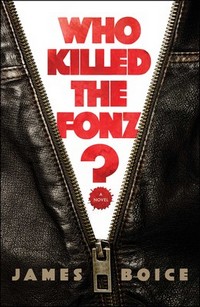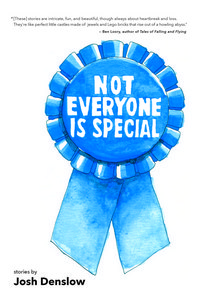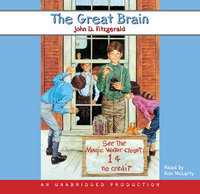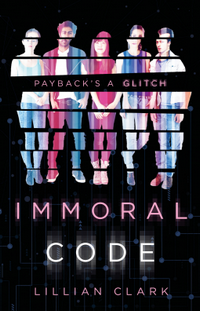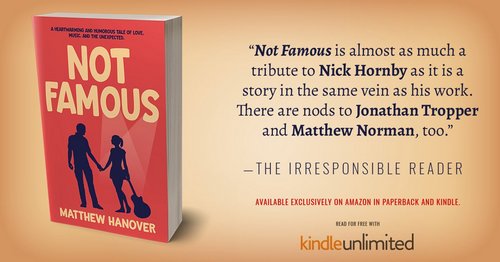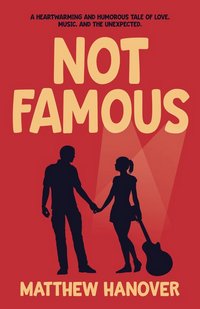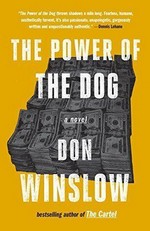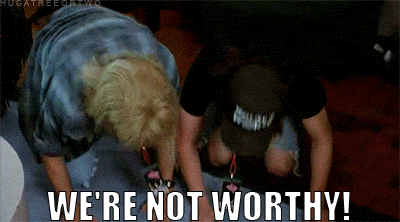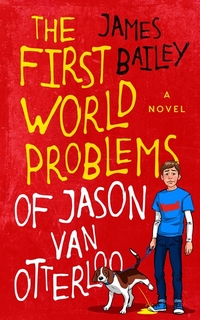 The First World Problems of Jason Van Otterloo
The First World Problems of Jason Van Otterloo
by James Bailey
Series: The Jason Van Otterloo Trilogy, Book 1
Kindle Edition, 193 pg.
2018
Read: March 15, 2019

Subject: New worst day of my life
If you have stock in me, sell it now. Or is it buy? Buy low, right? Then buy, buy, buy, because if JVO shares go any lower it can only mean I’m dead. Nothing is going right and everything is going wrong. Very wrong.
It’s been awhile since I read an epistolary novel (maybe Where’d You Go, Bernadette? — oh, and The Summer Holidays Survival Guide from last year — duh — I should stop thinking before I have to rewrite this whole paragraph), but I’ve always enjoyed them. There’s something about the structure, the conceit, the immediacy of it all that really appeals to me, and has since the day I first cracked the cover of Dear Mr. Henshaw 35 years ago or so.
This particular novel is a collection of e-mails from fifteen year-old Jason Van Otterloo (known by some as Otterpop, others just call him Jason) and his friends over the summer of 2003 in Seattle. This is a good setting for the book — it’s before the ubiquity of cell-phones/texting among teens, but at a time they could be emailing several times a day and it not seem strange (like it would in the mid-90s). I don’t know if that was Bailey’s thought process, but it’s what occurred to me. The emails are primarily Jason’s — not just because he’s prolific, but that’s a lot of it. Incidentally, I only caught one thing that jumped out at me as an anachronism — which is about the best that I can think of in an indie book set in the past (I don’t go looking for them, but they jump out at me. Binge-watching wasn’t a thing in 2003. At least not by that name)
Jason’s a pretty bookish kid who loves classic movies — not just AMC (back when that’s what the station was about), but there’s a theater near his home that shows old movies. His best friend, Drew (the recipient of most of his emails), frequently goes to those with him — they also play video games together, generally at Drew’s. Jason’s parents, Janice and Rob, aren’t in the running for Parents of the Year, to say the least. I’m not sure at what point Jason lost enough respect for the that he started calling them by their first name, but it could have been when he was pretty young. On the other hand, there’s enough venom in it (at least the way it reads to me) that it might be a recent development.
Janice shows the occasional burst of maternal activity or instinct, but it’s rare. Rather than a father, Rob seems like the bullying older brother character in most books I read as a kid. But in general, the two of them act like they’re stuck in their early 20’s — coming home from work long enough to greet each other and Jason, then they leave (not together) to meet up with friends and get drunk. Occasionally, they’ll get into a fight with each other, but nothing too serious. It doesn’t appear there’s any intentional abuse — physical or mental. It’s primarily neglect that they’re guilty of. Over the course of the summer, Rob does say a few things that will likely cause emotional scars when Jason has a few years to think about them, but they’re unintentionally mean (one was said when Rob was attempting to be nice and fatherly).
Generally, Jason’s e-mails are about whatever antics his parents are up to, arranging to meet Drew or whoever else, Jason’s soliciting Drew for advice about a girl he meets (he ignores almost everything Drew says, to the reader’s amusement and Drew’s frustration), and Jason recruiting Drew or someone to get summer jobs together. There’s an ongoing thread about a new neighbor who enjoys sunbathing, and Jason enjoys (hopefully surreptitiously) watching her. Rob enjoys watching her, too, but doesn’t bother trying to be surreptitious.
Jason’s emails are largely self-centered. Most of the stories told are his, not Drew’s. He does seem to care about Drew and is interested when Drew unloads a little. But largely, the relationship seems to be about Drew listening to Jason. Drew gets something out of it, however — maybe offline — because he seems emotionally-centered enough (for a fifteen year-old) to not put up with Jason as much as he does, if Jason just didn’t contribute anything to the friendship. Just don’t ask me what it is. His self-centeredness seems typical for his age, and it doesn’t make him a bad kid — just a selfish one, and a lot of that is because he’s never been parented by anyone who has a clue. Although, really, I’m not sure how many kids who have been well-parented who don’t act like that.
His parent’s (individually and corporately) show a signs of self-improvement — AA, marriage counseling, and others. Jason is openly skeptical about these efforts — perhaps because he’s seen similar things before. Not only is he skeptical, but he seems to actively subvert these efforts. It seems odd for a kid who spends so much time complaining about his parents to complain about them trying to be better — but it’s honest. He doesn’t believe in them, so why get his hopes up that this time will be any different? Sure, from the reader’s perspective it’s easy to say that these reforms might be longer-lived if he supported them. But from Jason’s? Nah.
There is a little character development over the course of the novel — but not a lot, But it’s just a few months, so there shouldn’t be a lot, right? What’s there seems genuine and true to the character — which is great. At the end of the day, you’ll have enjoyed watching Jason struggle and survive — learning enough to keep going.
Jason’s optimistic and amusing — which is says a lot about him. The whole book is told with a light touch –it’s not overly comic, but you grin as Jason recounts his latest embarrassment with Gina, or Rob’s most recent humiliating escapades — or even as he and Drew talk about their mutual astonishment when another friend has some romantic success. Things are bad, but they’re not bleak. They’re even kind of fun.
The cover, by the way, is perfect. It not only reflects a plot point, but it encapsulates the feel of the book. In a figurative sense the world pees on Jason the way this dog literally does. Yet, it’s kinda cute and amusing while it’s happening. Several good things happen to the boy, but overall, the book is about his problems (right?) and his reactions to them.
I don’t know what a YA reader would think of this — I imagine they’d find Jason relatable and likeable, but I’m not sure. But for those of us with enough distance from their YA days, it’s something that can be read with an air of “I remember when life was like that.” Even if it’s set over a decade later than my own teen years, I know people like Jason, I had friends who had a Gina in their life, and I dreamed of a girl like Sian. I’m probably not alone in this. This is a comfort-food kind of read — it’s entertaining and makes you feel good. I get kind of a Thomas Rockwell or 80’s version of Todd Strasser feel from this, very much a Lad Lit starter kit kind of thing, now that I think about it — which is good. Young Adults need something that’s not dystopian. There’s a sequel coming out in a week or two, and I’m really looking forward to it.
Disclaimer: I received this book from the author in exchange for this post and my honest opinion, which is what I provided.
—–
![]()




